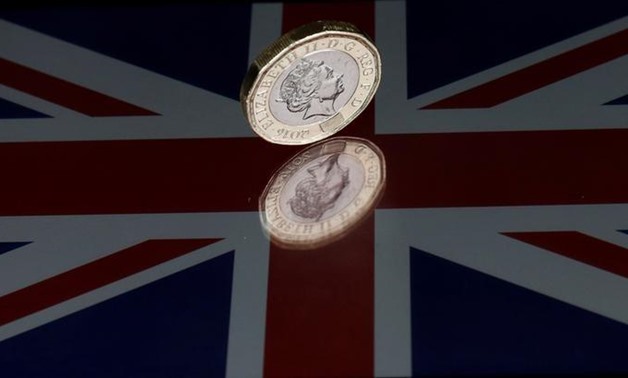
A one pound coin lies on a Union Flag in this picture illustration shot on May 3, 2017 - Reuters
LONDON - 18 July 2017: Sterling fell sharply against the dollar and euro on Tuesday after British inflation unexpectedly slowed for the first time since October last year, dampening expectations of an interest rate increase this year.
Consumer prices rose by 2.6 percent compared with a year earlier, down from a nearly four-year high of 2.9 percent in May and slowing for the first time since October.
Sterling lost more than half a cent in response, trading as low as $1.3015 after touching a 10-month high of $1.3126 just half an hour before the data release. It last traded at $1.3018, down 0.2 percent on the day.
The pound was also down nearly 1 percent at 88.73 pence per euro.
British government bond yields fell. Benchmark 10-year yields were down 5 basis points at 1.22 percent, a three-week low.
"We have been arguing against a BoE rate hike for a while now, given that inflation has been driven mainly by cost-push factors rather than demand-led," said Piotr Matys, a strategist at Rabobank in London.
"The latest data supports our view that the BoE is likely to refrain from raising interest rates throughout 2018 and perhaps until 2019."
Six-month and one-year UK interest rate swaps slipped between 2 and 3 basis points after the inflation data, unwinding a good part of a sharp rise since mid-June.
That rise coincided with indications from Bank of England policymakers, including Governor Mark Carney, that higher rates might be on their way.
Carney said in late June that higher borrowing costs would probably be needed if the economy overcomes its slowdown of earlier this year and wages -- which are lagging behind inflation -- grow more strongly.
Three of the bank's eight policymakers voted for higher rates on June 15, shocking markets, and the bank's chief economist Andy Haldane has also spoken in favour of raising official borrowing costs since.
The more hawkish tilt, along with weak U.S. data that pushed the dollar to a 10-week low against its major peers, helped push sterling from levels below $1.26 to Tuesday's high.
The BoE's next policy decision is due on Aug. 3.
"A really shocking move this morning," said one trader, declining to be named. "If you think the Bank is going to raise rates this year, you are having a laugh."
Comments
Leave a Comment